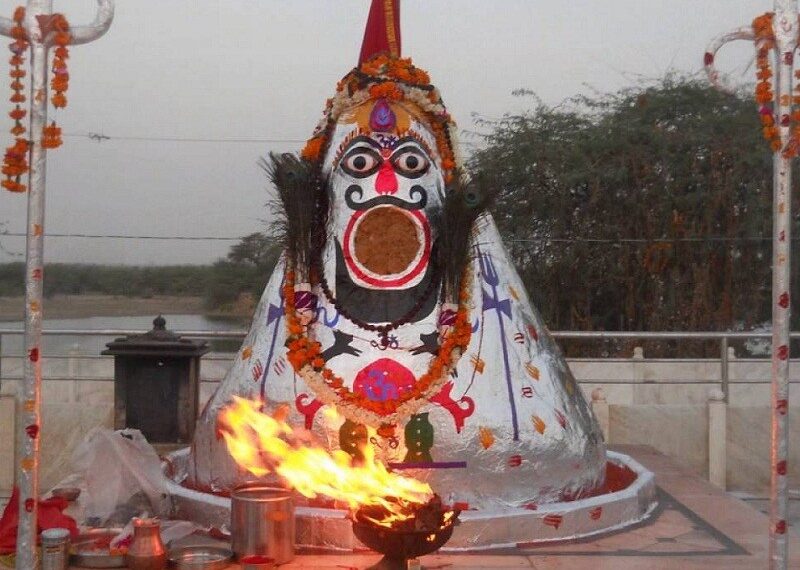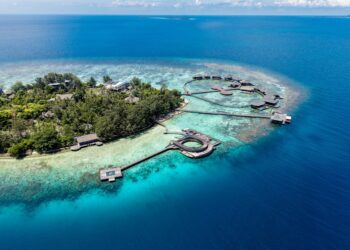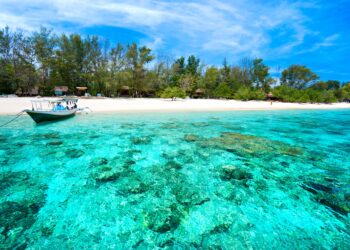About 24 kilometers from Bikaner, in the sandy stretches of Rajasthan’s Thar Desert, the Kodamdesar Temple stands as a sacred place for Lord Bhairon Ji, a fierce form of Lord Shiva. This temple is unique as it has no walls or roof, just open to the sky. Built long ago by Rao Bika Ji, who started Bikaner, it pulls in devotees who come to pray and explore the region’s old history. This blog tells you about the temple’s past, its stories, its plain but special look, why people pray here, and how to visit for visitors and devotees.
History of Kodamdesar Temple
The Kodamdesar Temple was built around 1465 AD by Rao Bika Ji, a prince from Jodhpur’s Rathore family. He left Jodhpur to make his own kingdom and reached Janglabad, what Bikaner used to be called. At first, he picked this spot to start his city. But Napo, a Sankhla Rajput who believed in signs, told him to move the city’s base to where Bikaner is now. In three years, Rao Bika built this temple for Lord Bhairon Ji, a protector deity thought to keep his new land safe. That makes this one of Bikaner’s first buildings, tied close to how the city began.
Over the years, people have looked after the temple, fixing it up to keep it open for worshippers. Its connection to Rao Bika and Bikaner’s early days gives it a big place in the area’s story, showing the royal family’s faith.
Legends of Kodamdesar Temple
A story from the priests says the idol has a special origin. Long before Bikaner, a man from Mandore in Jodhpur wanted to take a holy Bhairon Ji idol home. The deity gave permission but told him not to put the idol on the ground, or it’d stay there forever. Worn out, the man rested and set the idol down. It stuck fast, and no one could budge it. Years later, Rao Bika found the idol in Janglabad and built the temple around it, making it a place for prayer.
Another local idea says “Kodamdesar” comes from “Kodam,” meaning helmet, pointing to Lord Bhairon Ji as a protector deity.
Architecture of Kodamdesar Temple
This temple has a unique architecture. It’s got no walls, no doors, no roof—just a big idol of Lord Bhairon Ji on a white marble platform in an open yard. The idol, with sharp eyes and an open mouth, stands out, often covered with marigold flowers. Two tridents sit beside it, showing the deity’s strength. The yard has a marble floor, circled by the desert’s sand. A small lake out back makes a calm spot for meditation and prayers.
Dogs walk around the temple, seen as special because they’re Lord Bhairon Ji’s vahana, or vehicle.
oReligious Significance
The Kodamdesar Temple means a lot to Bikaner’s locals and others who visit. Lord Bhairon Ji, known as a fierce guard, is prayed to for safety, courage, and good luck. Newlyweds come for blessings for a happy marriage, and parents bring babies for the mundan, the first hair-cutting ritual, to get the deity’s favor.
The temple’s traditions are different. People put sweets, snacks, or even liquor in the idol’s mouth. After prayers, these are taken out and shared as prasad, thought to hold the deity’s power and blessing. Some give animal sacrifices are also performed linked to the deity’s fierce nature.
Every August or September, the Bhadrapad Fair brings local craftsmen and crowds, making the temple full of life. These ways and events show why the temple is so loved.
Visiting Information for Kodamdesar Temple
How to Get There
The temple’s in Kodamdesar village, 24 kilometers from Bikaner, off the Jaisalmer road. You can get there like this:
By Air: Jodhpur Airport’s the closest, about 250 kilometers away. Take a bus or taxi to Bikaner, a 4–5 hour trip, then a 40-minute ride to the temple.
By Rail: Bikaner Junction has trains from Delhi, Jaipur, and Jodhpur. From there, a taxi or bus to Kodamdesar takes about 40 minutes.
By Road: Bikaner’s 330 kilometers from Jaipur and 250 from Jodhpur, with good roads. From Bikaner, it’s a 40-minute drive or bus ride to the temple. Taxis are good for the smooth road.
Temple Hours
The temple’s open every day, usually 6:00 AM to 8:00 PM. Prayer times, like aartis, might change, so ask priests, especially during the Bhadrapad Fair.
Best Time to Visit
October to March is best, with cool weather, 10°C to 25°C, good for desert trips. The Bhadrapad Fair in August or September is lively but packed. Summers, April to June, get hot, up to 45°C, with dust storms, so go early. Rainy months, July to September, can make roads muddy, so check before you go.
Rules for Visitors
Wear proper clothes: men need shirts and pants or dhotis; women should pick sarees or churidar with a dupatta. No jeans or sleeveless tops.
Take shoes off before going in; there’s a place to keep them.
Photos are okay in the yard, but ask priests before snapping near the idol.
You can offer sweets or liquor, but talk to priests first. Animal sacrifices need their help.
No smoking, spitting, or drinking outside rituals. Eat prasad in the temple.
Bring water, sunscreen, and a hat for the desert sun. Watch dogs, as they’re worshipped here.
Nearby Places
Junagarh Fort: A 16th-century fort in Bikaner, 24 kilometers away, with Mughal and Gujarati styles.
Karni Mata Temple: In Deshnok, 30 kilometers off, known for its sacred rats.
Lalgarh Palace: A big palace in Bikaner, 26 kilometers away, now a hotel.
Desert Safari: Camel or jeep rides in the Thar Desert, close to Bikaner.
Final Words
The Kodamdesar Temple is a loved place in Bikaner, mixing faith and history with its open-air setup, special rituals, and old tales making it unique. Set in the quiet Thar Desert, it’s a divine place to pray to Lord Bhairon Ji and feel Rajasthan’s rich history. Visiting here is a must if you’re travelling in Rajasthan letting you touch the region’s spiritual heart and leaving you with a sense of peace.











